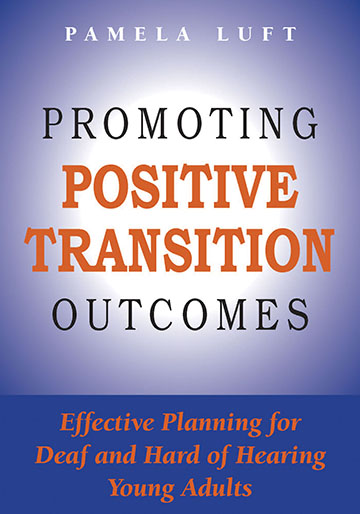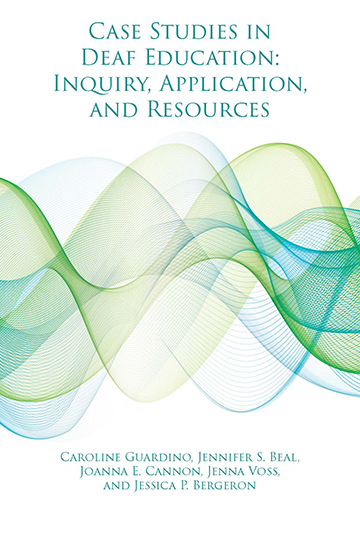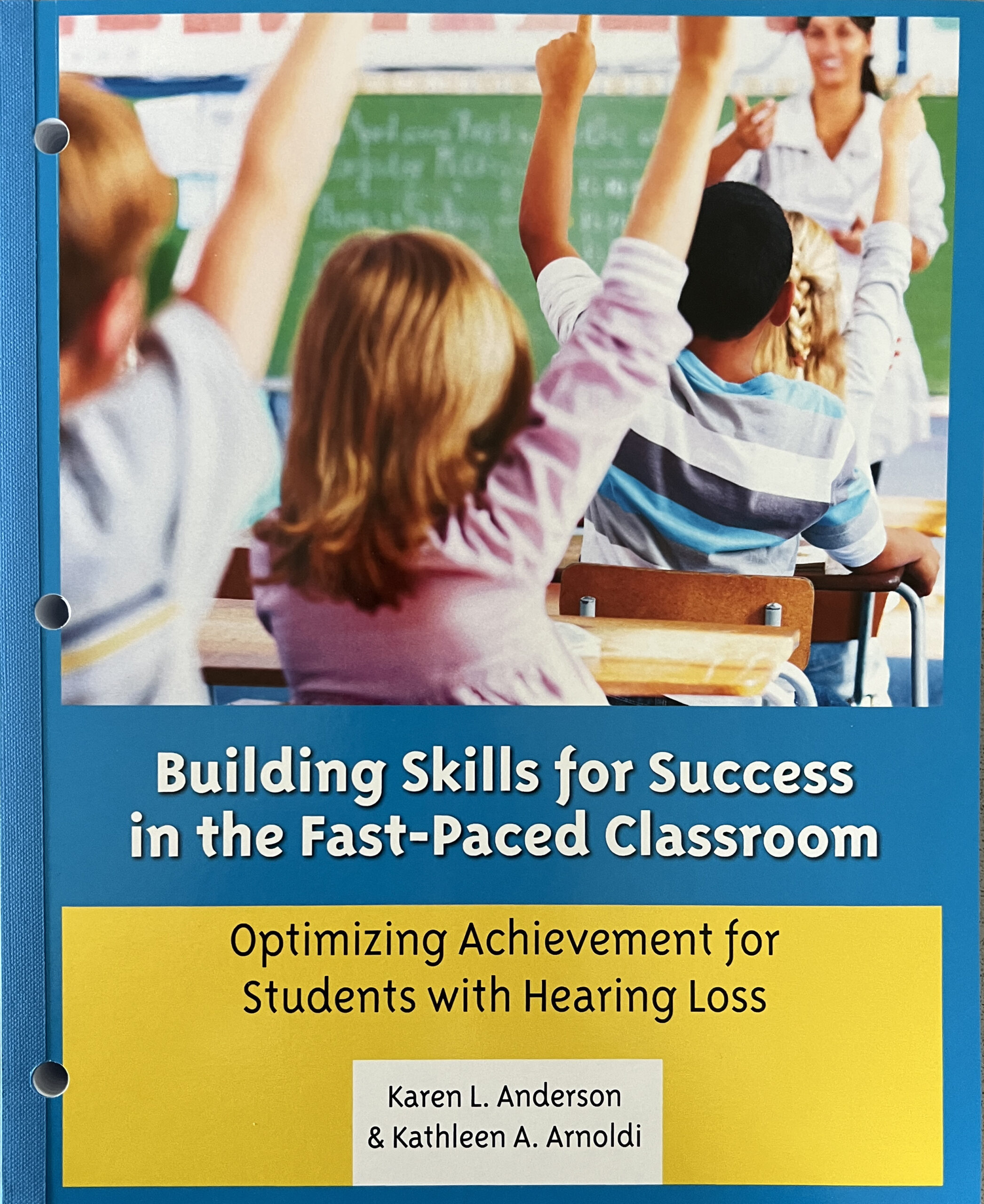Related Products
For Professionals
- Amplification
- Assessment of Student Skills, Challenges, Needs
- Early Childhood: Infants, Toddlers, Preschool
- Hearing Loss – Identification, Impact and Next Steps
- IDEA Law Summary Information
- Language and Speech Development Issues
- Legal Issues in Serving Children with Hearing Loss
- Listening (Auditory Skills) Development
- Planning to Meet Student Needs
- Self-Advocacy Skills for Students with Hearing Loss
- Self-Concept: How the Child with Hearing Loss Sees Himself
- Social Skills
- Speech Perception & Learning
Related Teacher Tools Takeout Items
Early Childhood: Infants, Toddlers, Preschool
 In the Early Childhood section:
In the Early Childhood section:
- Early Intervention Resources
- Brain Development and Hearing Loss
- Communication Choices
- Smiling, Eye Contact and Early Development
- Strategies for Keeping Hearing Aids on Young Children
- Hearing Aid Retention for Young Children
- Getting Ready to Read
- Emailable Tips for Preschool and Kindergarten Teachers
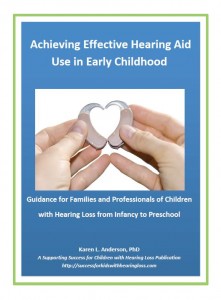
Children’s brains are developing foundational pathways during the early years. Language learning is based on the experiences of the child, especially the incidental conversations that occur around them. ANY form of language consistently used around the child will provide the input needed to the brain to learn the basics of communication.
Infants and Toddler Information for Professionals
- Early Intervention Resources
- Brain Development and Hearing Loss
- Communication Choices
- ASL Development
- Smiling, Eye Contact and Early Development
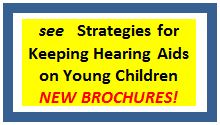
Hearing Evaluation & Hearing Technology The Office of Special Education Programs has two letters of clarification regarding the responsibility of state Part C early intervention programs related to provision of
audiological evaluations and
assistive technology, including hearing aids and also applying to FM systems.
Infants and Toddler Information for Parents
- How to Start to Help Your Child
- Ready or Not – Your Child has a Hearing Loss – Explaining the Urgency
- Early Intervention – What’s That?
- Communication – Whatever Fits Your Child and Family
Setting Lang in Motion: Family Supports and Early Intervention for Babies Who Are Deaf or Hard of Hearing.
This resource was developed collaboratively between the Clerc Center and the Deaf and Hard of Hearing Program at Boston Children’s Hospital. With this resource, parents, educators, and professionals have
free access to seven online modules which share information critical to promoting early language acquisition for young children who are deaf or hard of hearing. The topics covered in these seven modules include: early hearing screening and evaluating, understanding how the ear works, hearing aids, cochlear implants, using sign language for communication, communication at home, and parenting a deaf or hard of hearing child. Find out more
here.
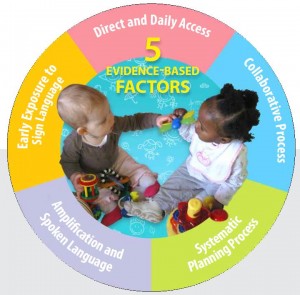
Early Intervention Network: Supporting Linguistic Competence for Children Who are Deaf or Hard of Hearing
This free online network is designed especially for early intervention professionals. It provides one centralized place to access evidence and recommendations to guide your practice in supporting language and communication development for young children who are deaf or hard of hearing. The network also provides an opportunity to see what early intervention providers are doing to implement these recommended practices. Visit the network and find out about the 5 evidence-based factors identified as critical to early language acquisition. Gain the knowledge and skills you need to effectively promote linguistic development for young children who are deaf and hard of hearing.
Track a Listening Child (TLC)
is available on the Cochlear Corporation website. This comprehensive tool helps you track your child’s progress and ensure they are achieving milestones in a timely manner. TLC has highlighted the major skills required to reach age appropriate spoken language, or each child’s own potential, by identifying specific milestones in audition/receptive language, expressive language, speech, pragmatics/self-advocacy and cognition/general development.
Sound Foundation for Babies
is the companion training program to Track a Listening Child. This resource is designed for children of 12 to 24 months of age, who receive their cochlear implant around 12 months of age. [Also applicable to children receiving hearing aids in early childhood] The Sound Foundation for Babies series consists of 40 self-contained sets of goals in the areas of audition, receptive language, expressive language and speech as well as a song and a story book. This comprehensive resource provides parents, with children that have a hearing loss, guidance in developing their child’s spoken language through listening. The activities included in this habilitation series are designed to fit easily into everyday life as well as provide the knowledge and understanding of the theory behind the goals identified each week.
Preschool

